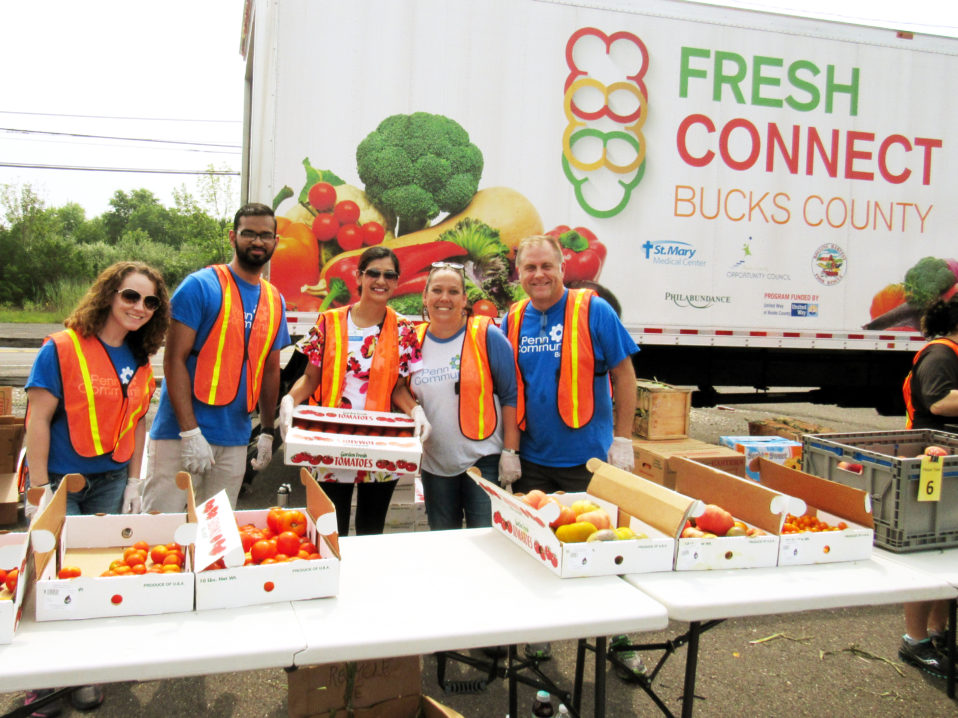Penn Community Foundation looks to address issues of food, safety, housing and skills by investing in nonprofits already working in the community.
Posted on Generocity.org; Mar. 26, 2019; By Todd Hurley / GUEST
When people think of Bucks County, the first thing they think of probably isn’t hunger and homelessness. But the brochure-worthy images of rolling farms and estate homes gloss over a startling truth; among the manicured lawns and stately homes of the suburbs and exurbs nestle pockets of people living in real need.
Consider this. Yes, the average income in Bucks County is high, as the opening salvo of Generocity’s “March is going to The ‘Burbs” editorial points out. But another metric is just as high — average home price. With an average annual mortgage payment of more than $14,000 and high average closing costs and property tax bills, Bucks County is the least affordable county in the state, according to a 2017 housing affordability study by financial technology company SmartAsset. That makes it difficult for low- to moderate-income families to find safe, affordable housing here.
And when it comes to nutrition, about 1 in 10 Bucks County residents are food insecure, according to Feeding America, which means more than 50,000 people do not have reliable access to food every day. More than 12 percent of Bucks County’s children — about 16,640 — are food insecure, and more than half of those are not eligible for most federal nutrition programs, because their households make just a little too much money.
With an average annual mortgage payment of more than $14,000 and high average closing costs and property tax bills, Bucks County is the least affordable county in the state.
Too many of our suburban neighbors are struggling to meet these most basic human needs of nutritious food and safe, affordable housing. That’s one reason we created the Penn Community Foundation in 2016, to partner with local organizations to address four critical priorities: ensuring that none of our neighbors go hungry, advocating for safe, affordable housing, giving people the skills they need to become economically self-sufficient, and offering financial education that empowers people to take charge of their finances.
To do this, we partner with leading local nonprofits working to meet these critical needs and end the cycle of poverty.
We support hunger-fighting efforts such as Bucks Knocks Out Hunger, a meal-packing event organized by United Way of Bucks County that provides nutritious meals to 30 area food pantries. This past year, we reimagined our annual “Feed-a-Neighbor” Food Drive to encourage cash donations to purchase fresh produce, meats and dairy, we volunteered at the Fresh Connect farmer’s market, and we partnered with Rolling Harvest to provide funding so local farmers can grow up to an additional 30,000 pounds of additional fresh, healthy produce that area food pantries always need.
We are sponsoring the construction of a new single-family home, one of four that Habitat for Humanity of Bucks County is building in Morrisville. Whenever we announce a new build day, our team members snap up the volunteer spots within minutes.
Our leadership helped launch and remains deeply committed to the Economic Self-Sufficiency Program run by the Bucks County Opportunity Council. Over 20 years, this proven program has graduated 299 people, nearly all of them women, and most of them, mothers with children. Graduates spend an average of three years in the program, according to a 2018 report analyzing the program’s impact, and must meet 10 benchmarks, including having safe housing, reliable transportation, health insurance for every family member, full employment, and no reliance on welfare subsidies.
We partner with leading local nonprofits working to meet these critical needs and end the cycle of poverty.
Before enrolling in the program, most participants — nearly 8 out of 10, in 2016 — depend upon welfare to survive; the average graduate had earned just $11,099 annually, far below the poverty threshold. After completing the program, every graduate became gainfully employed and their annual income increased significantly. In 2016, for example, an average graduate’s income was $46,322, about four times as much as they had earned previously.
As an independent, mutual bank — the second-largest mutual in Pennsylvania — Penn Community Bank is not publicly traded and has no shareholders. That means we can make decisions based on what is best for our customers and our communities. We are grateful to the dozens of hard-working nonprofits with which we partner every year to address the sometimes-unseen poverty in the suburbs.



